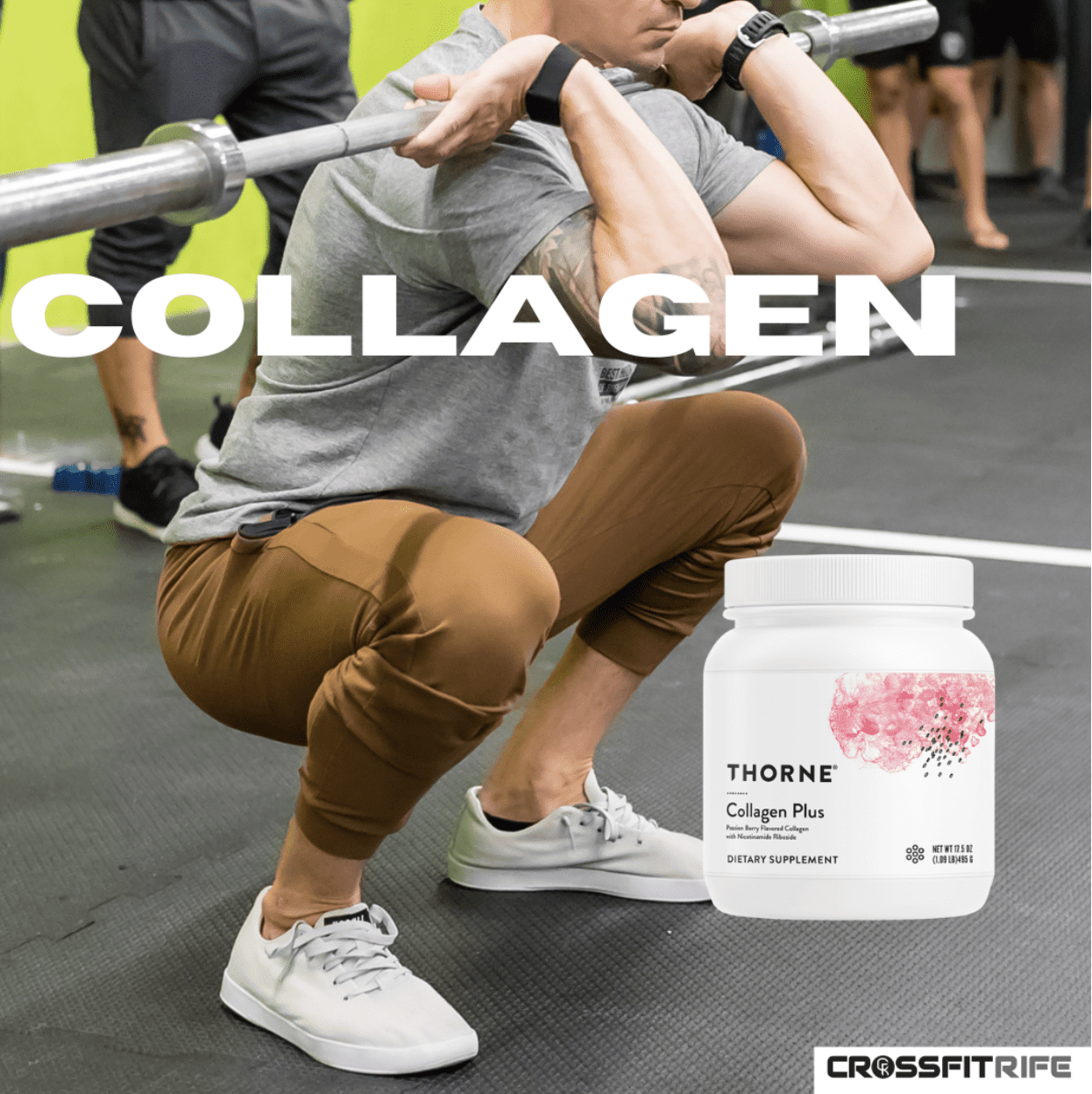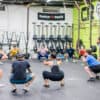As a CrossFit athlete, you know the importance of fueling your body with the right nutrients to support your training and performance. One nutrient that may be worth considering is collagen.
Collagen is a protein found in the body that plays a key role in the structure and strength of connective tissues, such as skin, bones, tendons, and ligaments. It is also involved in the production of enzymes, hormones, and blood vessels.
There are many potential benefits of collagen for CrossFit athletes, including:
- Improved joint health: Collagen helps to maintain the elasticity and strength of joints and connective tissues, which can be especially important for CrossFit athletes who put their bodies through high-intensity workouts on a regular basis.
- Faster recovery: Collagen may help to reduce inflammation and speed up recovery after workouts, allowing you to get back to training sooner.
- Improved skin health: Collagen helps to maintain the elasticity and strength of the skin, which can be beneficial for CrossFit athletes who may be more prone to cuts, scrapes, and bruises due to their training.
- Enhanced muscle mass: Some research suggests that collagen may help to promote muscle growth and repair, which can be beneficial for CrossFit athletes looking to build strength and endurance.
Signs that you might need to Supplement
Some signs that a CrossFit athlete might benefit from supplementing with collagen include:
- Joint pain and discomfort
- Decreased flexibility or mobility
- Tendinitis or bursitis
- Decreased recovery time from workouts
- Poor skin, nail, and hair health.
However, it is important to note that these symptoms can have many different causes, and the best way to determine if collagen supplementation would be beneficial for an individual is to chat with your coach and doctor.
How to get adequate collegen without supplements
Collagen can be obtained from dietary sources without taking supplements. Some good sources of collagen include:
- Bone broth: Rich in collagen, amino acids, and minerals
- Fish: Fish such as salmon and sardines contain collagen-boosting omega-3 fatty acids
- Fruits and vegetables: Berries, citrus fruits, leafy greens, and red and yellow vegetables contain antioxidants that help to protect and support collagen production
- Meat: Eating grass-fed beef and organic poultry can provide the body with essential amino acids needed to produce collagen
- Eggs: Rich in protein and biotin, which supports healthy skin and hair
Incorporating these foods into a well-balanced diet can help support the body’s natural collagen production.
How to supplement Collagen
So, how can you get more collagen in your diet? Collagen is found in animal products, such as bone broth, meat, and dairy, but it can also be obtained through supplements in the form of powders or capsules. It is important to note that not all collagen supplements are created equal, so it is important to choose a high quality product that is backed by research and made with pure, high-quality ingredients. Look for collagen supplements that are made with hydrolyzed collagen, which is more easily absorbed by the body, and avoid products that contain artificial additives or fillers. It is also a good idea to choose a brand that is transparent about their manufacturing processes and has a reputation for producing high-quality supplements. When it comes to collagen supplements, it is worth investing in a high-quality product that will provide the maximum benefits for your health and fitness goals.
What does a good regime look like?
A good supplement regime for collagen supplementation would depend on an individual’s specific health needs and goals. However, a general guideline for collagen supplementation could include the following:
- Consult a healthcare professional: It is always best to speak with a doctor or registered dietitian before starting any new supplement regimen.
- Dosage: The recommended daily dose of collagen can vary based on an individual’s age, sex, weight, and activity level. A typical daily dose of collagen supplement is 10-15 grams.
- Timing: Collagen supplements can be taken at any time of the day, with or without food. Some people prefer to take it in the morning to support their joints and skin throughout the day, while others take it before bed for improved sleep and recovery.
- Quality: When choosing a collagen supplement, it is important to look for high-quality products from reputable brands. Choose a product that is hydrolyzed for better absorption, and check for any potential allergens or additives.
- Variety: Different types of collagen supplements, such as types I, II, and III, can target specific health concerns such as joint health, skin health, and gut health.
It is always important to remember that supplements are not a substitute for a healthy, balanced diet and regular exercise. Always feel free to reach out and chat with us about what is best for you!






